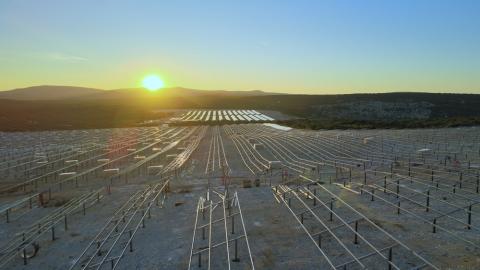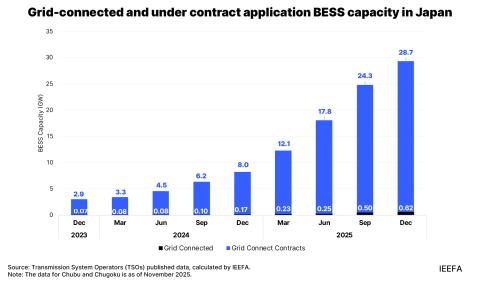Indonesia's Downstream Coal Plans Add up to a Black Hole
Download Full Report
View Press Release
Key Findings
IEEFA concludes that the savings only work for the Indonesian government when the LPG price is more than US$858/tonne, which has only happened for 15 months during the last 20 years.
The DME project in its current form would not be able to justify any savings from the substitution of LPG imports, except for a limited period. It is also unable to satisfy all four major stakeholders simultaneously.
Executive Summary
While global leaders were focused on building confidence in new net-zero commitments at the November COP26 meeting in Glasgow, the American industrial gas company Air Products & Chemicals (APD) was busy signing memoranda of understanding (MOUs) reportedly worth as much as US$15 billion to develop coal gasification projects in Indonesia.
The high-profile signing ceremony with Indonesian President Joko Widodo and a group of leading ministers on the sidelines of the Indonesia-UAE Investment Forum in Dubai, was surprising to outside observers in light of government commitments to reduce the use of coal. This very public push for high-value investments from APD may prove an awkward fit with the challenges that they and their Indonesian counterparts are facing, as they try to make the numbers work on two deals announced earlier.
But to seasoned observers of APD, the company’s interest in downstream coal projects in Indonesia is old news, because the company has been in negotiations on two projects with an estimated value of US$4.1 billion over the last two years. These are a proposed $2.1 billion project with state-owned enterprise (SOE) Tambang Batubara Bukit Asam (PTBA) to build a coal gasification plant in Sumatra to produce methanol and subsequently dimethyl ether (DME), announced in January 2020, and a proposed $2 billion coal to methanol project in Kalimantan, with the privately owned Bakrie Group, announced in May 2020.
These two projects come at a time when cash-rich APD is eager to deploy capital to large-scale international projects to generate reliable cash flows and help the company position itself as a “clean energy” leader in emerging markets. For Indonesia’s cash-hungry policymakers, APD’s coal gasification technology is a trifecta that will stoke demand for low-rank coal reserves, boost foreign investment, and displace subsidized liquified petroleum gas (LPG) imports.
This mix of business and policy goals has triggered a looming policy conflict because it may be impossible to satisfy the needs of all parties at the table. APD’s business model thrives only with a low risk, guaranteed return. Unfortunately, the Indonesian corporate and SOE counterparties prefer everyone else — APD or consumers — to bear much of the market risk. Meanwhile, the Ministry of Finance is supportive only if coal gasification can knock out other imported fuel products without high subsidies.















